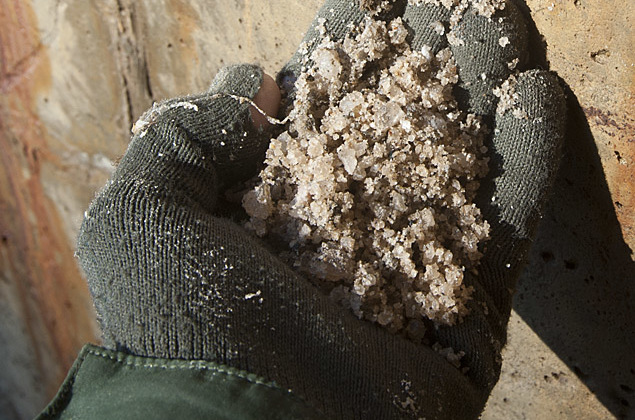Keeping Town Roads Safe This Winter
How Much Damage Does Salt Cause to Cars and the Environment?
By Ruth Melville
Everyone knows that salt is bad for cars, roads, and the environment, but living in a northern state, we need our roads to be clear and safe to drive on despite our often severe winters.
For the past six years, the town of Norfolk has used a product called Magic Salt, also known as Ice-B’Gone, on its roads. This is salt treated with a byproduct of the alcohol industry and looks like brown chunks. Norfolk buys its Magic Salt from the Morton Company, the same company that makes ordinary table salt.
The state of Connecticut puts a different material on its roads, a liquid solution of magnesium chloride and salt, about a million gallons a year. The Connecticut Department of Transportation (DOT) has acknowledged that this mixture is corrosive but claims that the risks are outweighed by its affordability and effectiveness in keeping the roads safe in the winter. Earlier this year, however, the state legislature passed a law requiring the DOT to analyze the corrosive effects of different chemical road treatments, and the results of that study are due out soon.
Until the switch to Magic Salt, Norfolk and the state both put down a combination of sand and salt on the roads. First Selectman Sue Dyer says that the Department of Energy and Environmental Protection (DEEP) urged a move away from sand because it leaches into brooks and culverts and can pick up oil from the undercarriage of cars. Sand is also more expensive to use, because road crews have to go out to sweep it up at the end of the winter season.
It was also becoming hard to get, Dyer says, and some of what was available was bad, consisting not just of granules but small pebbles that could fly up and crack windshields or nick paint. The town still uses sand sometimes on difficult spots such as hills or dirt roads, or to combat freezing rain and black ice. At the town garage, a pile of sand mixed with a little salt is available for the public to take.
Norfolk switched to Magic Salt in 2008. Torrington was the first town in the area to try it out on a couple of major roads. The experience was a success, and other towns soon followed suit. All Norfolk road trucks are equipped only to disperse Magic Salt, not a liquid.
John Allyn, the town supervisor of public works, likes using Magic Salt. He says that it is as effective as the state’s magnesium chloride and salt solution, and much less corrosive. Magic Salt is the only de-icer to receive a recommendation from the Environmental Protection Agency. It costs a little more, but in the long run it is less expensive, since, unlike sand and salt, there is very little spring cleanup.
Dyer thinks that the Magic Salt works better than the solution the state uses. “There have been times we’ve had to treat and plow Route 44. The state’s product makes so much slush that trucks can’t make it up the hill at Botelle. State police have even had to commandeer our town trucks.”
Magic Salt can also be used to pretreat roads before a storm starts. Depending on the severity of the winter, Norfolk goes through between 800 and 2,000 tons of Magic Salt a season, with an average winter requiring 1,000 tons.
No matter which specific product is used, however, salt inevitably causes metal to rust and can damage infrastructure, ecosystems, and vehicles, especially undercarriages and brake lines. Both Richard Zionce, of Norfolk’s D & R garage, and George Auclair, of George’s Garage, have noticed that the damage done to cars has gotten worse in the past four or five years. Zionce adds that the newer products seem harder to wash off. “Even if you hose a car down, once the salt’s there, it seems to stay. It creeps in everywhere.” Subaru has recently issued a recall for brake linings in what it calls “the snow-belt, cold weather states,” including Connecticut.
Originally, Connecticut experimented with adding an anticorrosive agent to its de-icing solution, but stopped after a year. Anticorrosive agents work by removing oxygen, which stops rust from forming. Unfortunately, the runoff can get into waterways and cause a lot of damage by lowering oxygen levels in the water.
So there is no magic solution to de-icing wintry roads. For the time being at least, Magic Salt seems the best choice available.
Photo by Bruce Frisch

